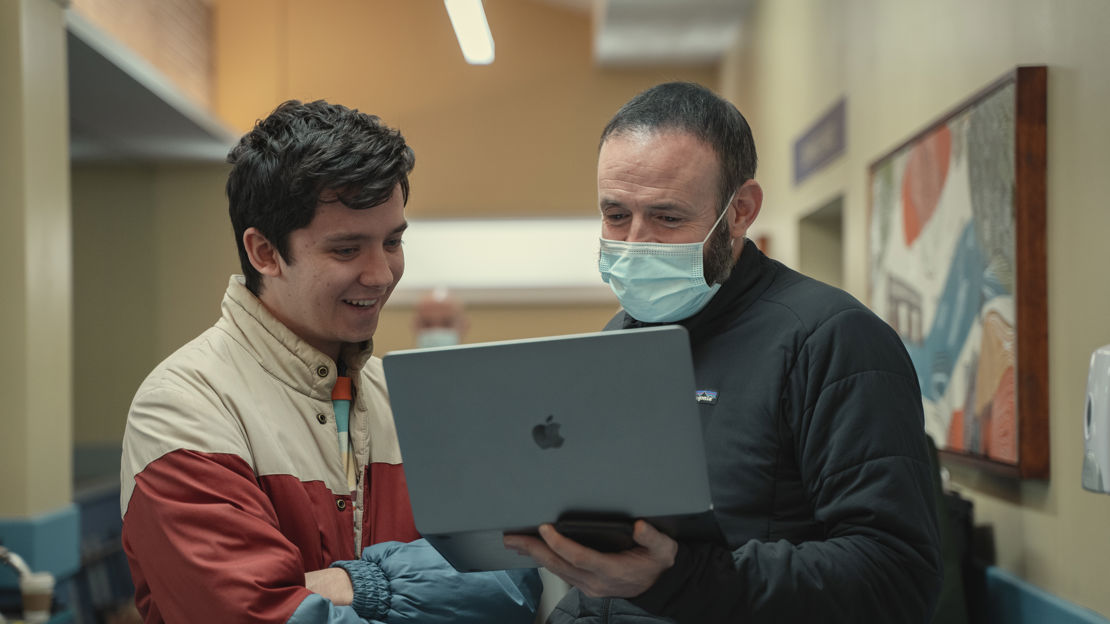
In today’s world, where globalization drives many businesses, moving for work isn’t as rare as it used to be.

Whether your move is personal or professional, mentioning it in your job application is a must.
This article will show you how to write a relocation cover letter to help land your dream job.
What Is a Relocation Cover Letter?

A relocation cover letter follows the same format as a standard one, but you mention your move early on.
Some employers might hesitate if they see you’re currently far away.
Recruiters typically spend just seven seconds scanning resumes and cover letters, picking out keywords from the job description.
A quick explanation of your situation and willingness to relocate reassures them this is a serious application.
What Should You Include in a Relocation Cover Letter?
While you’ll still highlight your skills and experience, also consider these points:

- Your current address – Don’t lie. Starting a professional relationship with dishonesty is a bad move. Be upfront about where you live—you don’t want to miss an interview because you can’t make it in time.
- Explain your move in the second or third paragraph – Be honest. Are you moving for family, a partner’s job, personal dreams, or the role itself? Also, mention how far along you are—just planning, or already in progress?
- Use key phrases – Saying things like “permanent relocation” shows commitment. Back it up with reasons, like better job security or quality of life in the new city.
- Clarify that the job aligns with your move – Employers don’t want to hire the wrong person. If your move depends on landing the job, say so. If it’s already happening, confirm you’ll be settled before the start date.
- State you’ll cover relocation costs – Most corporate jobs get 250+ applications, many from locals. By saying you’ll pay for the move, you avoid awkward money talks. (Relocation packages usually only happen if you’re headhunted or the company wants you to move.)
- Mention interview availability – Say if you’ll be in the area soon or are open to virtual interviews first, followed by in-person ones later.
How Do You Write a Cover Letter for Relocation?

Introduction
Start with the job you’re applying for and why you’re a great fit.
“I’m thrilled to apply for the legal secretary role in Atlanta. With my track record of managing high-profile schedules, I’m confident I can bring the same success to your firm.”
Expand on Your Move

Explain why you’re relocating and what excites you about the company.
“After three years as a legal secretary, I’ve long admired your firm’s integrity and values—qualities I strive to embody. Atlanta shares these values, which is why I’ve always planned to move there permanently when the right opportunity came along.”
Highlight Relevant Experience

Focus on skills that match the job description.
“As a legal secretary, every day is different. I’m highly adaptable and excel at multitasking—currently managing two CEOs’ schedules. In three years, I’ve never missed an appointment, flight, or reservation, thanks to a system I created that also cut costs by 16–19%.”
Second Key Skill

Pick another skill from the job description.
“Since travel arrangements are a key part of this role, I’ve built strong relationships with travel agents and hotels, reducing costs by 11% last year.”
Interview Availability

Give options:
*“I’m available anytime for a phone or virtual interview. If you prefer in-person, I’ll be in Atlanta from March 4th for eight days.”*
Closing & Call to Action

Wrap up with enthusiasm.
*“If chosen, I’ll boost productivity while cutting costs. Thanks for considering my application—reach me at 555-555-5555 or myname@gmail.com.”*
Already Relocating

(Formal letter format, same content as original, rewritten naturally.)
“I’m applying for the marketing manager role in Savannah. My partner and I are nearly done moving to Georgia—they’ve taken a chief resident position at Savannah General, and I’m excited to see an opening at your agency. With my seven years of award-winning campaign experience, I know I can add value.”
(Rest of the letter follows the same style—keeping all details intact but smoother.)
Relocation Depends on Job

(Same approach, casual but professional.)
“I’m applying for the visual merchandiser role in San Francisco—a city I fell in love with while studying there. Though I’m in LA now, I have no ties holding me back and can relocate immediately if hired.”
(All original points included, just phrased more naturally.)
Final Thoughts
When applying for jobs in new locations, honesty is key.
- If you’re already moving, reassure employers about your timeline.
- If the move depends on the job, say so—and confirm you’re ready to commit.
- Show there are no obstacles and that you’ve thought it through.
For the rest, follow standard cover letter rules:
- Highlight top skills (match the job description).
- Quantify successes (e.g., “boosted sales by 42%”).
- Let your personality shine—employers hire people, not just skills.
- Keep it to one page, well-structured.
- Be confident—recruiters notice when you believe in yourself.
FAQs for Job Applications in New Locations
How can I ensure a smooth transition when relocating for a job?
Being well-prepared is key. Research the new location thoroughly, from housing and transportation to local amenities and culture. Have a clear timeline for the move and start the process early to avoid last-minute stress. Employers will appreciate your proactive approach in managing the relocation.
Should I apply for jobs before visiting the new location?
It depends on your situation. If you’re moving to a location you’re not familiar with, it’s best to visit beforehand to understand the area and its opportunities. If visiting isn’t feasible, make sure to do extensive research online, and express your willingness to visit the location during the interview if needed.
How do I handle interview logistics if I’m relocating from a distant city?
If you’re applying for jobs in a new location, you can suggest conducting interviews via video calls, especially if traveling would be too costly or time-consuming. However, be open to attending in person if the employer requests it. If you’re selected for an interview, make arrangements well in advance to show your commitment.
How can I show that my skills are transferable if I’m moving to a different industry or location?
Focus on highlighting the skills that are universally valuable, such as leadership, communication, problem-solving, and adaptability. Draw parallels between your past experiences and how they can benefit the new role or industry, making sure to emphasize how you can quickly adapt and thrive in the new environment.
Should I mention my timeline for moving in the job application?
Yes, it’s important to be transparent about when you’re planning to relocate. Employers will appreciate your honesty. If the move is contingent on the job, let them know you are flexible and ready to start within a reasonable timeframe. Reassure them that you’ve thought through the logistics and are fully committed to making the transition.
What if I’m applying for a job in a city I’m unfamiliar with?
In this case, do your homework on the area. Mention any research you’ve done, such as the cost of living, local culture, and even potential neighborhoods you might move to. This shows you’re not only serious about the job but also ready to adapt to the new environment.
How do I address concerns about relocation costs?
It’s best to avoid discussing relocation costs unless the employer brings it up. If it’s a factor, be prepared to express your flexibility and discuss how you are willing to handle the relocation process. If you need assistance, let them know you’re open to negotiating this as part of your offer.
What should I focus on when relocating internationally for a job?
When relocating internationally, focus on understanding the work culture, visa requirements, and any language barriers. Ensure you are aware of any legal or immigration processes required for the move, and mention this in your cover letter if it is relevant to the employer.
Conclusion
When applying for jobs in new locations, transparency and preparation are essential. Employers appreciate candidates who are clear about their relocation plans and have carefully considered the logistics of the move. Demonstrating your commitment to the role and company, as well as showing that you’ve thought through every detail of the transition, will make you a more attractive candidate. Tailor your application to highlight the skills and accomplishments that are most relevant to the job, and express your enthusiasm and readiness to embrace the new location and challenges. By doing so, you can successfully navigate the job application process and make your relocation smooth and efficient.






